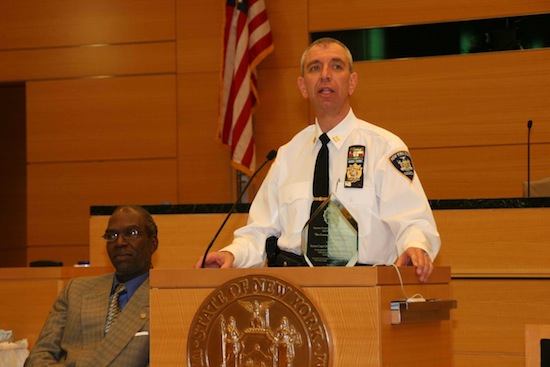Court officers’ softball league could end after 25 years

Brooklyn’s court officers are responsible for the security and protection of the city’s judges, court employees, and the general public, which can often be a tough job. As a means of letting off steam, these officers have participated in their own softball league for many years. Not only do their games help to relieve stress, but they also serve as a way for the officers to build camaraderie. But due to recent budget cuts and heavy caseloads, the league, which has formally existed since 1988, is now in danger of dying out.
“We were running strong for quite a while, then interest started waning and budget cuts the last couple of years have really hurt us,” explained John Allan, the league’s commissioner for the past two seasons.
“With the compressed schedules, guys are working four days a week. If their day off is on Wednesday and they live out on Long Island, there is no way they are coming back here for a softball game.”
